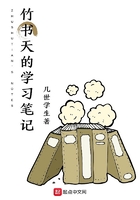Browning was present at a great dinner given for the Shah at Stafford House, the home of the Duke of Sutherland, and the finest palace in London. Every guest was asked, in order to impress the Shah, to come in all the decorations to which they were entitled.
The result was that the peers came in their robes, which they otherwise would not have thought of wearing on such an occasion, and all others in the costumes of honor significant of their rank.
Browning said he had received a degree at Oxford and that entitled him to a scarlet cloak. He was so outranked, because the guests were placed according to rank, that he sat at the foot of the table. The Shah said to his host: "Who is that distinguished gentleman in the scarlet cloak at the other end of the table?"The host answered: "That is one of our greatest poets." "That is no place for a poet," remarked the Shah; "bring him up here and let him sit next to me." So at the royal command the poet took the seat of honor. The Shah said to Browning: "I am mighty glad to have you near me, for I am a poet myself."It was at this dinner that Browning heard the Shah say to the Prince of Wales, who sat at the right of the Shah: "This is a wonderful palace. Is it royal?" The Prince answered: "No, it belongs to one of our great noblemen, the Duke of Sutherland.""Well," said the Shah, "let me give you a point. When one of my noblemen or subjects gets rich enough to own a palace like this, I cut off his head and take his fortune."A very beautiful English lady told me that she was at Ferdinand Rothschild's, where the Shah was being entertained.
In order to minimize his acquisitive talents, the wonderful treasures of Mr. Rothschild's house had been hidden. The Shah asked for an introduction to this lady and said to her: "You are the most beautiful woman I have seen since I have been in England. I must take you home with me." "But," she said, "Your Majesty, I am married." "Well," he replied, "bring your husband along. When we get to Teheran, my capital, I will take care of him."Mr. Phelps's talent as a speaker was quite unknown to his countrymen before he went abroad. While he was a minister he made several notable addresses, which aroused a great deal of interest and admiration in Great Britain. He was equally happy in formal orations and in the field of after-dinner speeches. Mrs. Phelps had such a phenomenal success socially that, when her husband was recalled and they left England, the ladies of both the great parties united, and through Lady Rosebery, the leader of the Liberal, and Lady Salisbury, of the Conservative, women, paid her a very unusual and complimentary tribute.
During John Hay's term as United States minister to Great Britain my visits to England were very delightful. Hay was one of the most charming men in public life of his period. He had won great success in journalism, as an author, and in public service. At his house in London one would meet almost everybody worth while in English literary, public, and social life.
In the hours of conversation with him, when I was posting him on the latest developments in America, his comments upon the leading characters of the time were most racy and witty. Many of them would have embalmed a statesman, if the epigram had been preserved, like a fly in amber. He had officially a very difficult task during the Spanish War. The sympathies of all European governments were with Spain. This was especially true of the Kaiser and the German Government. It was Mr. Hay's task to keep Great Britain neutral and prevent her joining the general alliance to help Spain, which some of the continental governments were fomenting.
Happily, Mr. Balfour, the British foreign minister, was cordially and openly our friend. He prevented this combination against the United States.
During part of my term as a senator John Hay was secretary of state.
To visit his office and have a discussion on current affairs was an event to be remembered. He made a prediction, which was the result of his own difficulties with the Senate, that on account of the two-thirds majority necessary for the ratification of a treaty, no important treaty sent to the Senate by the president would ever again be ratified. Happily this gloomy view has not turned out to be entirely correct.
Mr. Hay saved China, in the settlement of the indemnities arising out of the Boxer trouble, from the greed of the great powers of Europe. One of his greatest achievements was in proclaiming the open door for China and securing the acquiescence of the great powers. It was a bluff on his part, because he never could have had the active support of the United States, but he made his proposition with a confidence which carried the belief that he had no doubt on that subject. He was fortunately dealing with governments who did not understand the United States and do not now. With them, when a foreign minister makes a serious statement of policy, it is understood that he has behind him the whole military, naval, and financial support of his government. But with us it is a long road and a very rocky one, before action so serious, with consequences so great, can receive the approval of the war-****** power in Congress.
I called on Hay one morning just as Cassini, the Russian ambassador, was leaving. Cassini was one of the shrewdest and ablest of diplomats in the Russian service. It was said that for twelve years he had got the better of all the delegations at Pekin and controlled that extraordinary ruler of China, the dowager queen.
Cassini told me that from his intimate associations with her he had formed the opinion that she was quite equal to Catherine of Russia, whom he regarded as the greatest woman sovereign who ever lived.















